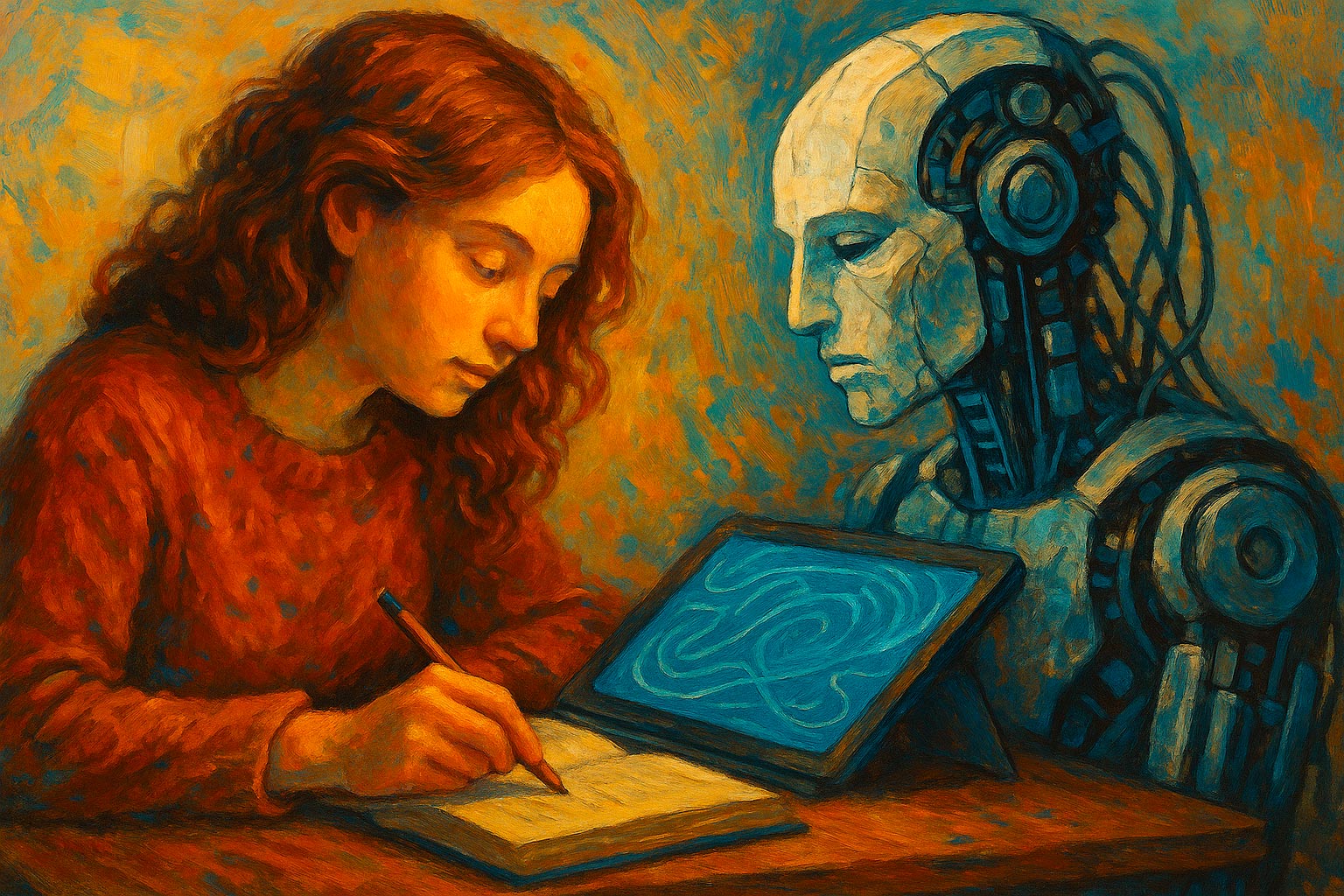One of the most profound transformations of our time does not concern how we work or communicate, but something far more intimate: how we learn. For centuries, learning has been framed as a process of passive acquisition—knowledge flowing from an authoritative source into the mind of the learner. Books, teachers, and institutions have functioned as vessels of transmission, while students were expected to absorb, memorize, and reproduce. Today, the emergence of advanced artificial intelligence systems is dismantling this paradigm. Learning is no longer a matter of consumption; it is increasingly becoming a deeply creative act.
This shift raises a provocative question: if learning is now hyper-personalized, interactive, and generative, do traditional books and formal teaching structures risk becoming obsolete? The answer is not that education disappears, but that its very nature is being radically redefined.
The key to this transformation lies in the unprecedented degree of personalization that AI enables. Traditional education, by necessity, follows a “one-to-many” model: one lesson, one textbook, one curriculum designed to accommodate as many learners as possible. But what is designed for everyone is rarely ideal for anyone. The constraints of standardization limit the depth, relevance, and immediacy of learning.
Artificial intelligence overturns this logic. It establishes a direct “one-to-one” relationship between the learner and knowledge itself. Instead of being constrained by a fixed structure, the learner can shape the flow of information according to personal curiosity, cognitive style, prior experience, and even emotional state. A concept as complex as quantum mechanics can be reframed through metaphors from sport or music, rendered humorous or poetic, and stripped of technical elements if the learner wishes. The textual world, once rigid and universal, becomes adaptive and bespoke.
More importantly, AI repositions the learner from recipient to author. The idea of “writing the book you want to learn, as you learn it” represents an epistemic shift of extraordinary magnitude. Artificial intelligence serves not as a passive repository of answers but as an active intellectual partner—an assistant capable of helping reorganize concepts, compare perspectives, formulate critical summaries, and weave these insights into coherent, personalized knowledge structures. Learning becomes an exercise in authorship: one interrogates ideas, reformulates them, synthesizes them, and integrates them into a coherent narrative.
This process requires a level of cognitive engagement that passive reading cannot match. To write about something, one must not only understand it but internalize it, dismantle it, and reconstruct it according to one’s own logic. In this creative labor, information ceases to be fragile and fleeting; it becomes durable knowledge, integrated into one’s conceptual framework. Reading alone may illuminate; writing transforms.
AI accelerates this transformation by acting as a constant source of feedback, challenge, and refinement. It allows learners to test hypotheses, simulate debates, question assumptions, and explore multiple interpretations of the same concept. Learning becomes dialogic rather than monologic—less a transfer of content and more a negotiation of meaning. The boundaries between study, authorship, and research blur.
This reconceptualization of learning is the foundation of what we might call Never-Ending Learning: a continuous, generative, adaptive, and unbounded process in which the learner evolves alongside the knowledge being constructed. No longer confined to the temporal limits of formal education, learning becomes a lifelong creative practice. Every interaction becomes an opportunity for synthesis; every question becomes the seed of a new chapter; every idea becomes a draft awaiting refinement.
In such a landscape, the role of books changes dramatically. They cease to be monolithic objects imparting immutable truths and instead become interlocutors—starting points for inquiry rather than endpoints. They are no longer authoritative final words but raw material for conversation. The learner no longer venerates the text; the learner collaborates with it.
The true revolution, therefore, is not technological but cognitive. Artificial intelligence does not simply provide answers—it expands the very notion of what it means to understand. It elevates learning from the passive gathering of information to the active creation of knowledge. It transforms study into authorship, curiosity into structure, and reflection into production.
Never-Ending Learning is not simply the future of education; it is the reawakening of a fundamental human capacity: the ability to build meaning rather than receive it. Learning becomes a living process, sustained by dialogue, enriched by creativity, and powered by a continuous interplay between human intuition and machine intelligence.
The age of the passive learner is ending. In its place emerges a new figure: the learner as creator, the learner as author, the learner as an ever-evolving architect of understanding.
